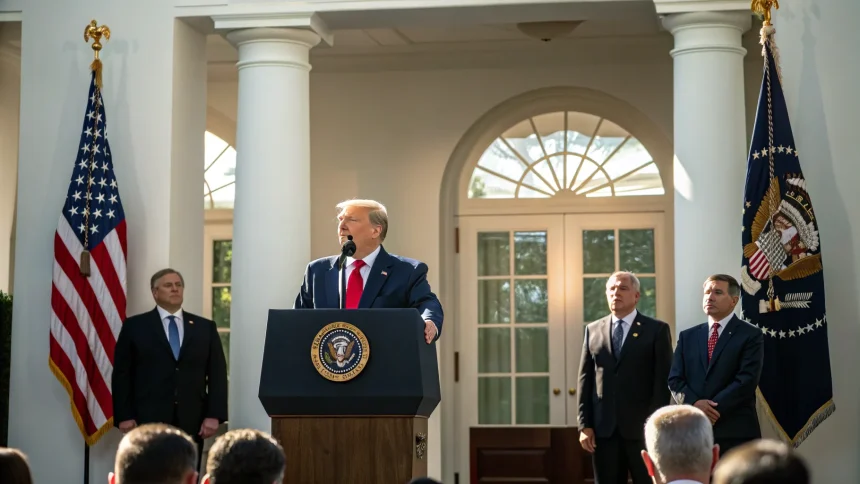The US president has announced new measures designed to protect American manufacturers from foreign imports. This decision marks a significant shift in trade policy as the administration takes steps to strengthen domestic industries.
The president’s announcement comes amid ongoing concerns about the impact of international trade on US manufacturing jobs and production capacity. The move signals a commitment to prioritizing American businesses in an increasingly competitive global marketplace.
Protection Strategy and Implementation
While specific details about the implementation timeline remain limited, the president’s statement suggests these protections will likely take the form of tariffs, quotas, or other trade barriers designed to reduce competition from overseas products.
The administration appears to be responding to long-standing complaints from US manufacturing sectors that have struggled against lower-priced foreign alternatives. Industries such as steel, aluminum, automotive, and consumer goods could potentially benefit from these new protective measures.
Economic Implications
Trade experts are divided on the potential economic impact of these new import restrictions. Supporters argue that such measures will:
- Preserve manufacturing jobs in vulnerable sectors
- Encourage investment in domestic production facilities
- Reduce US dependency on foreign supply chains
Critics, however, warn that import restrictions often lead to higher prices for American consumers and businesses that rely on those imports. They also point to the risk of retaliatory measures from trading partners that could harm US exporters.
International Response
“This move will likely face pushback from major trading partners who may view these actions as protectionist,” said a trade policy analyst who requested anonymity. “Countries affected by these restrictions might challenge them through the World Trade Organization or implement their own countermeasures against US exports.”
The announcement has already generated responses from several nations that export significantly to the US market. Trade representatives from these countries have expressed concern about the potential impact on their economies and bilateral relations.
Manufacturing industry groups in the US have generally welcomed the announcement. “American workers have been asking for a level playing field for decades,” noted one industry representative. “These protections could help rebuild sectors that have been hollowed out by foreign competition.”
The president’s decision represents a continuation of recent trends toward more protective trade policies. Over the past several years, administrations from both parties have shown increased willingness to use trade barriers as tools to support domestic industries.
As implementation details emerge in the coming weeks, businesses, consumers, and international partners will be watching closely to determine how these new protections will reshape trade relationships and manufacturing prospects in the United States.









